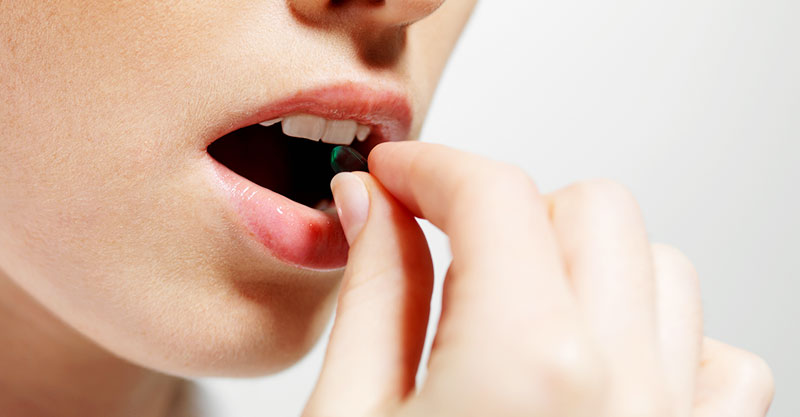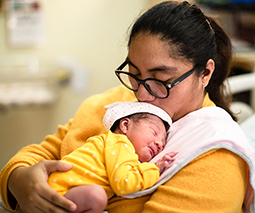Study finds placenta capsules may not boost iron levels after all

The latest research into the merits of new mums eating their own placenta has found that some of the health benefits may have been over-sold.
Would you like placenta with that?
Placentophagy describes the practice of a new mum ingesting her own placenta. She may consume it in capsule form (provided by a placental encapsulation service) or whip something up in the kitchen, aiming to her expedite postpartum recovery. Placenta stir fry, anyone?!
Experts tell us that the practice is fairly common in nature, with many mammals consuming their own placenta, post-birth. It’s thought that the animal world embraces the placenta-as-meal-slash-supplement idea, partly because of hormonal benefits – the placenta is rich in recovery-speeding prostaglandins – and partly to conceal the birth from lurking predators. In humans, however, placenta-eating is still a fairly niche practice.
Insignificant
While proponents of placentophagy say it has a whole host of benefits, researchers have focused in on their claims of improved iron levels.
Their study – which followed 23 pregnant women – found that placenta capsules had no significant effect on the iron status in new mums.
“Encapsulated placenta supplementation neither significantly improves, nor impairs, postpartum maternal iron status for women consuming the recommended daily allowance of dietary iron during pregnancy/lactation.”
False sense of security?
With iron deficiency proving to be a common problem for postpartum women, experts say that relying solely on placenta capsules to boost iron levels is not advisable and could compromise womens’ health.
New mums should be supplementing their iron levels from a variety of sources to ensure levels return to normal, post-birth, researchers say.
“Human placentophagy appears to be an increasingly popular practice in the US and abroad, and yet almost no clinical studies have been conducted to assess its possible health benefits or risks,” University of Nevada, Las Vegas (UNLV) medical anthropologist and the study’s senior co-author Daniel Benyshek says.
“While there may indeed be other benefits for women who eat their placenta after birth, the common practice of consuming the placenta in capsule form in the first few weeks after delivery does not appear to significantly improve iron levels for new mothers.”
Pro-placenta
So what are these ‘other benefits’ of consuming placenta?
Placentophagy-promoting site PlacentaBenefits.info explains that the benefits are many and varied:
- the placenta contains the mother’s own natural hormones
- the placenta is perfectly made for that mother
- placentophagy can balance the mother’s system
- placentophagy can give the mother more energy
- placentophagy lessens bleeding postnatally
- placentophagy has been shown to increase milk production
- placentophagy helps the mother to have a happier postpartum period
- placentophagy hastens the return of uterus to pre-pregnancy state
- placentophagy may be helpful during menopause
The majority of these purported benefits are not based on any clinical studies, however.
This study is part of a larger research project by UNLV. They are looking at the effects of consuming placenta on maternal mood, fatigue, and hormone levels, too.
The findings of their broader study are yet to be released, but the takeaway for new mums so far is that they should be supplementing iron from a number of high-quality sources – not just placenta capsules.









